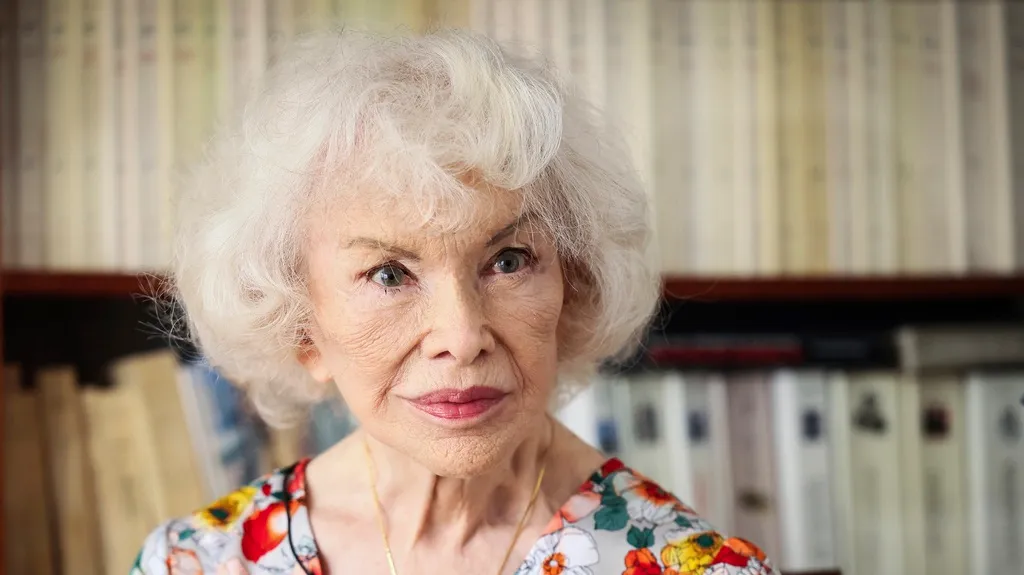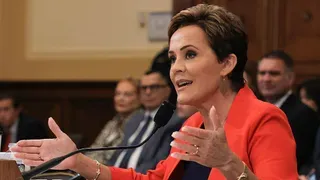January 30, 2012
HIV Law Project Fights for Privacy, Dignity, Access to Healthcare
Bob Sanders READ TIME: 9 MIN.
On a sunny afternoon in 2011, Raymond Tyler (as with all persons with HIV mentioned in this article, the name has been changed to protect privacy) answered the door to his apartment. Outside a cheerful delivery boy had Tyler's first vitamin order from the neighborhood pharmacy ("123 Drugs" here).
"We see that you're currently receiving your HIV medications from XYZ Drugs," the delivery boy informed him helpfully. "We at 123 Drugs can provide these medications for you as well, which can save you both time and money."
Tyler had only just recently discovered, to his shock, that his health provider had informed 123 Drugs of his HIV status without his consent. Now he was horrified that such a confidential piece of information was being shared so widely.
Mark Lewis was recovering from a recent bout of perplexing infections in a different unit in the same facility that had treated Tyler. He was stunned when a visitor, an employee on the medical staff, who also happened to have been a former intimate, burst into his room uninvited, and angrily confronted Lewis on his HIV status.
"How dare you?" the visitor charged. Up to that moment, Lewis had no idea he was infected with HIV.
Both men were the victims of serious rights violations. And both men are currently receiving free legal services from HIV Law Project regarding these breaches of their confidential health records.
How a Healthcare Law Informs HIV
The modest office of the HIV Law Project (HLP) is in an office building on Maiden Lane in New York's bustling Financial District, within shouting distance of the Stock Exchange. The non-profit is the only such legal practice in New York City -- and perhaps anywhere --devoted exclusively to the rights of people living with HIV and AIDS. Since 1989, the firm has handled more than 21,000 cases, and provided over 200,000 hours of free legal assistance to low-income clients.
A good deal of its litigation is based on readings of the Health Insurance Portability and Accountability Act. Bill Clinton signed HIPAA into law in 1996. Part of its intent was to protect the health information of private citizens.
In the two cases above, health provider flagrantly disregarded the law, according to lawyers at HLP. In Lewis' case, the accusing on-staff medical employee had even been able to print out a personal copy of Lewis' files for private use. Complaints to the NYS Department of Health went unacknowledged, his lawyers allege.
"It's a staggering thing that your private confidential medical information can be treated so haphazardly that any employee in the hospital, or the delivery person at the pharmacy, can know your status and present it to you," says HIV Law Project Executive Director Tracy Welsh.
"It's unfathomable. Moreover, from the clients' perspective, the state-recommended mechanism that had been set up, saying, 'This is your right', was useless," she added. "They followed their filing to a 'T.' And it fell into this abyss. It's like nobody's listening."
Both complainants want assurances that such breaches will never happen again to anyone else. "Our clients are looking for acknowledgment of accountability by the hospital, and some training in appropriate confidentiality issues," Welsh notes. "Had they received that, they would have been satisfied. The hospital refused to do either."
The outcome of both cases is still pending.
HIV Stigma, Discrimination Remain Widespread
Even in relatively liberal New York City, cases of discrimination against those infected with HIV still occur with shocking regularity. HPL advises people not to disclose HIV status in the workplace, for example.
"One of our clients was employed by a pharmacy," Welsh recounts. "Somehow in the course of his employment, his status was disclosed. They moved his desk to the basement, as if to say, 'We have to get away from you.' It is an example of a completely ignorant response."
On a human level, an apology works, says HIV Law Project longtime Executive Director Tracy Welsh comments. "On an organizational level we would like to prevent this from happening again to someone else."
People with HIV are entitled to dignity and respect, Welsh emphasizes. "This medical provider seems to have forgotten that when people leave their care, they have to interact with the rest of the world, which may not be well informed about HIV. And the consequences can be horrendous."
A Project Born Out of Crisis
In the late 1980s, horrified at the systematically brutal treatment received by her HIV-infected Legal Aid clients, public service lawyer and ACT-UP member Terry McGovern began reaching out to provide legal services to those most in need.
"In 1989, the legal service sector had a lot of fear and bias in providing services to people with HIV," Welsh recalls. McGovern began putting up signs on lampposts reading "If you have HIV and you need help, Call This Number."
"Finally," Welsh notes, "there was a legal provider who was not only competent but also sensitive to the needs of people with HIV. Thus HIV Law Project was born." (McGovern has since left the organization she founded.)
Of course there was Gay Men's Health Crisis from the earliest days of the crisis. But GMHC was a broad service organization with an emphasis (since widely broadened) on gay men, as its name implied. Most people of color getting HIV were women, who were then not comfortable going to such an organization. Then came undocumented aliens and drug abusers. HLP made it its mandate to service such marginalized people.
Small Organization, Huge Impact
In addition to providing direct legal services, the not-for-profit practice also targets the broader systemic structural issues, through impact litigation and public policy.
"Rather than defining ourselves as a not-for-profit organization, we are a "for impact" group," says Development Director Pankow. "The language shift breaks the mold on how 501C3 organizations can -- and should, if they want to survive -- talk and think internally. We want to talk about our vision, rather than mission statement. And rather than 'donors,' we want 'investors' -- investors who share our vision of the world."
Over the years, HIV Law Project has successfully won some precedent-setting cases, such as tackling the definition of AIDS from the Centers for Disease Control, a federal agency. At risk were Social Security disability benefits for people suffering from AIDS.
"In the early days, Social Security benefits were based upon studies showing how HIV progressed in gay white men," Welsh recalls. "The CDC wrote the definition of AIDS, and Social Security used that definition to make determinations of benefits eligibility. In 1989, if for example, you had Kaposi Sarcoma, you could qualify.
"But if you had cervical dysplasia, or cervical cancer related to HIV, you were not found disabled. We literally had women and people of color who were dying in the hospital, all the while the Social Security administration was telling them, 'No, you are not disabled.' It wasn't easy. Act Up was very involved."
Finally, in 1993, the CDC expanded its definition of AIDS to include pulmonary tuberculosis, cervical cancer, and recurrent pneumonia.
Empowering the Powerless
In February 2007, a grant from the Ford Foundation enabled HIV Law Project to convene a group of HIV-positive women. The Center for Women and HIV Advocacy encouraged the members to develop an HIV-awareness campaign of their choosing.
"It started as just a 'safe space' for positive women to get some basic information," says HLP Director of Finance Michael Pankow. "It gradually built up to group members getting training in media."
"I don't just crunch numbers," adds HLP's Shahmet Gordon. "The reason I started with the Law Project was because I believe in empowering people to advocate for themselves. We trained groups of positive women to do exactly this. I was able to sit in on some of the advocacy classes. I would see these women come in who were not very vocal, who by the time they left here, had a voice. They were going to Albany and speaking to legislators. I could see people blossoming."
The women were asked what issues were important to them. The group identified comprehensive medically accurate sexual education. HLP Supervising Attorney on HIV Policy Alison Yager acted as one of the group coordinators.
"Proper sexual health education was not happening in the city schools," she notes. "The women in the advocacy group shared that they were filling in the gaps with their kids and their grandkids in their own ways. They determined they could bring a lot of energy towards a serious campaign for mandated sexual health education in the city schools."
The women went from not speaking for themselves, "to standing on street corners and getting signatures, to going to different events to speak, to garner support," Gordon says proudly.
The women allied with other, larger women's advocacy organizations in letter-writing campaigns at public officials. "One year," Yager recalls, "in conjunction with other organizations, there was a campaign where people called 311 and said 'I want sex education in my schools.'"
The women also also targeted Congress about the Abstinence-Only issue, which mandates that AIDS education be limited to abstaining from sex rather than prevention through condoms and other means for the sexually active. In 2006, New York State was receiving federal funding from controversial abstinence-only programs. Since then, the state has rejected such string-attached funding programs.
In 2011, the efforts of the advocacy group finally paid off.
Mandated by Mayor Bloomberg's office, the New York City Department of Education required that both middle and high schools must include medically accurate sexual health courses in their curriculum. The new programs will be rolled out in the winter semester of 2012.
"Everyone in the group was thrilled and incredulous," says Yager, "but a lot of questions rose to the surface. How are we going to monitor it and assure accountability?"
HIV Law project partnered with Planned Parenthood and several other organizations to meet with the city's Department of Education to express their willingness to ensure that students get the proper medically accurate information.
"We're all well aware that N.Y. is a hugely diverse city," Yager explains. "Many of our cultures and religions have strong views about marriage or premarital sex. This comprehensive sex education curriculum has nothing to do with endorsing sexual activity. It is about acknowledging that over 50% of young people in high school are having sex. We cannot ignore this. We have an obligation to keep our young people safe. It's a health issue like any other."
Even so, the program has come in for a firestorm of criticism. "Mandatory Sex-Ed Details May Be Too Racy for Parents" -- this headline came from WNBC-TV. On his Fox News show, Sean Hannity warned that kids would be taught "oral sex and mutual masturbation, porn stars, vibrators, and bestiality," just for starters.
Even some who believe that children can and should be taught about reproductive functions believe the program comes up short on LGBT and gender-identity issues. "A lot of these standard curricula are 'hetero-normative,'" Yeger points out. "Our allies and we have offered to fill in some of those gaps by orienting the city to other successful curricula that are out there. We're optimistic that this is being addressed."
Taking the Cause National
HIV Law Project's focus over the next five years includes taking inventory about where the firm can make the biggest national impact for those who are most in need.
Last November, Welsh and Yager attended the United States Conference on AIDS in Chicago, where rural cases of HIV stigma, discrimination, and the lack of legal services were addressed.
"A lot of the legislation that was being made 20 years ago was out of New York City, Chicago, L.A. and San Francisco," says Welsh. "Over the years, we have built infrastructure in these urban areas to combat some of the worst offenses and rights violations. We can use what we've learned here in New York."
The epidemic's spread into rural areas has brought up a whole new batch of issues, situations and problems. "If you're poor and you live in rural Mississippi, and you're HIV positive, and you require transportation assistance to get to your doctor who is an hour away, and suddenly your local social services agency cuts your transportation benefit; well, I'm sorry, but you're not going to the doctor," says Yager. "Or if you have three kids, and you need to take them with you when you go to the doctor, and they send you only one voucher for one person's shuttle ride, that means you're not going to the doctor, either."
For people living in rural areas, often case workers from the county health department check up on them at home. If "they drive the county's HIV services van right up to your house and knock on your door, well, they've just outed your status," Yager points out.
HIV Law Project is currently engaged in building partnerships across the country to address the changing dilemmas people with HIV have to face. For example, Alabama parents who are positive do not currently have a mechanism by which they may develop advanced legal planning for their children. HLP is talking to local legal partners to help craft a "stand-by guardianship" law and HIV "Special Needs Plans."
"These laws provide peace of mind for parents, knowing that their children are planned for should something untoward happen," explains Welsh. "Without access to social workers, federal disability benefits or advocates to handle appeals, it becomes very difficult for people to live healthy lives."
The Americans with Disabilities Act mandates that no one can discriminate based on HIV in employment and public accommodations. "If that is happening in any locale, it should be fought aggressively," Welsh notes. "And it requires aggressive watchdog litigation when those breaches do happen. We're partnering with dozens of other people to help ensure that those structured policies are more fair and just, precisely so that we can end this epidemic."





